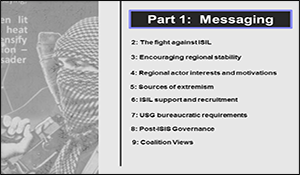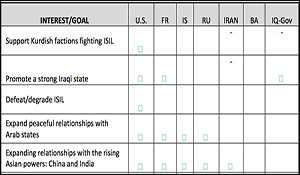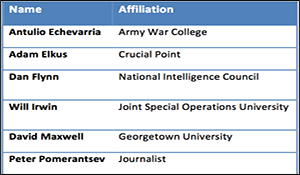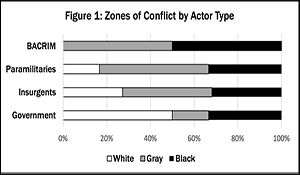Discourse Indicators of Gray Zone: South China Sea
Discourse Indicators of Gray Zone Activity: South China Sea Case Study. Author | Editor: Dr. Lawrence Kuznar, George Popp, & Nicole (Peterson) Omundson (NSI, Inc.) The increasing use of emotive themes and rhetorical devices (that amplify a message’s emotional effect) provide indicators of gray zone activities in speeches made by Chinese, Philippine, and Vietnamese government […]
Continue ReadingDiscourse Indicators of Gray Zone: Estonia
Discourse Indicators of Gray Zone Activity: Russian-Estonian Relations Case Study. Author | Editor: Dr. Lawrence Kuznar, George Popp, & Nicole (Peterson) Omundson (NSI, Inc.) The increasing use of emotive themes and rhetorical devices (that amplify a message’s emotional effect) provide indicators of gray zone activities in speeches made by Eurasian regional leaders and has the […]
Continue ReadingDiscourse Indicators of Gray Zone: Crimea
Discourse Indicators of Gray Zone Activity: Crimean Annexation Analysis Case Study. Author | Editor: Dr. Lawrence Kuznar, George Popp, & Nicole (Peterson) Omundson (NSI, Inc.) The increasing use of emotive themes and rhetorical devices (that amplify a message’s emotional effect) provide indicators of gray zone activities in speeches made by Eurasian regional leaders prior to […]
Continue Reading
Part 1 A Compendium of Messaging Reports
SMA CENTCOM Reach-back Reports – Part 1: Messaging. Author | Editor: SMA Program Office. This is Part 1 of a 9 part series of SMA Reach back responses to questions posed by USCENTCOM. Each report contains responses to multiple questions grouped by theme. At the request of United States Central Command (USCENTCOM), the Joint Staff, […]
Continue ReadingSyria Da’esh Insurgency
Question (R3 QL7): How does Da’esh’s transition to insurgency manifest itself in Syria; which other jihadist groups might offer the potential for merger and which areas of ungoverned space are most likely to offer conditions conducive for Da’esh to maintain some form of organizational structure and military effectiveness? Author | Editor: Polansky (Pagano), S. (NSI, […]
Continue Reading
Regional Interests Analysis
Question (S2): In light of their divergent goals and interests, what are the necessary factors that would permit the U.S.-led Coalition, regional stakeholders (including Israel, Russia, and Iran), or jihadist groups to achieve their aims in Iraq? Where do disparate groups’ interests align and where do they diverge? What can the U.S. coalition do to […]
Continue Reading
Violent Non-state Actors in the Gray Zone
Violent Non-state Actors in the Gray Zone A Virtual Think Tank Analysis (ViTTa). Author | Editor: Sarah Canna, Nicole (Peterson) Omundson, & George Popp (NSI, Inc.) Using the Virtual Think Tank (ViTTa) expert elicitation methodology, NSI asked six leading gray zone experts whether Violent Non-state Actors (VNSAs) belong in the definition of the gray zone. […]
Continue Reading
Demystifying the Gray Zone: Colombia, Libya, Ukraine
Demystifying Gray Zone Conflict: A Typology of Conflict Dyads and Instruments of Power in Colombia, Libya and Ukraine. Author | Editor: Koven, B. (START). The author of this report is Barnett S. Koven, Senior Researcher at the National Consortium for the Study of Terrorism and Responses to Terrorism (START). Questions about this report should be […]
Continue Reading
ViTTa Assessment and Analysis of the Gray Zone
The Characterization and Conditions of the Gray Zone: A Virtual Think Tank Analysis (ViTTa) Author | Editor: Popp, G. (NSI, Inc). Within United States government (USG) and Department of Defense (DoD) spheres, the gray zone is a relatively new terminology and phenomena of focus for characterizing the changing nature of competition, conflict, and warfare between […]
Continue ReadingRussian Interests in Syria
Question (R2 Special): What are indicators of change in Russian strategic interests in Syria? Author | Editor: Astorino-Coutois, A. (NSI, Inc). This paper found that Russia¹s strategic interests in the Middle East are fairly stable. What could change is how Russia prioritizes its interests in the wake of the US election and change in administration. […]
Continue Reading